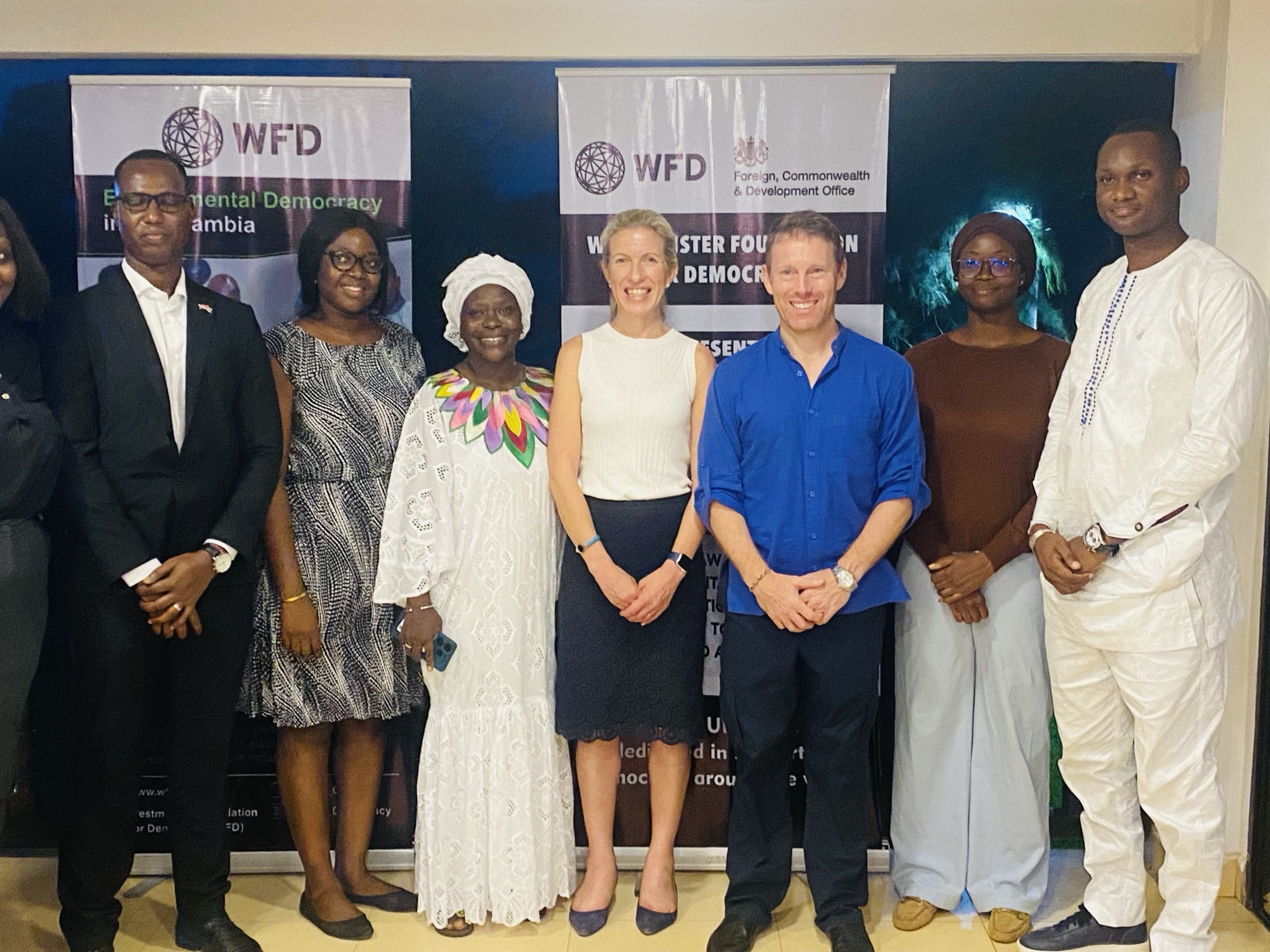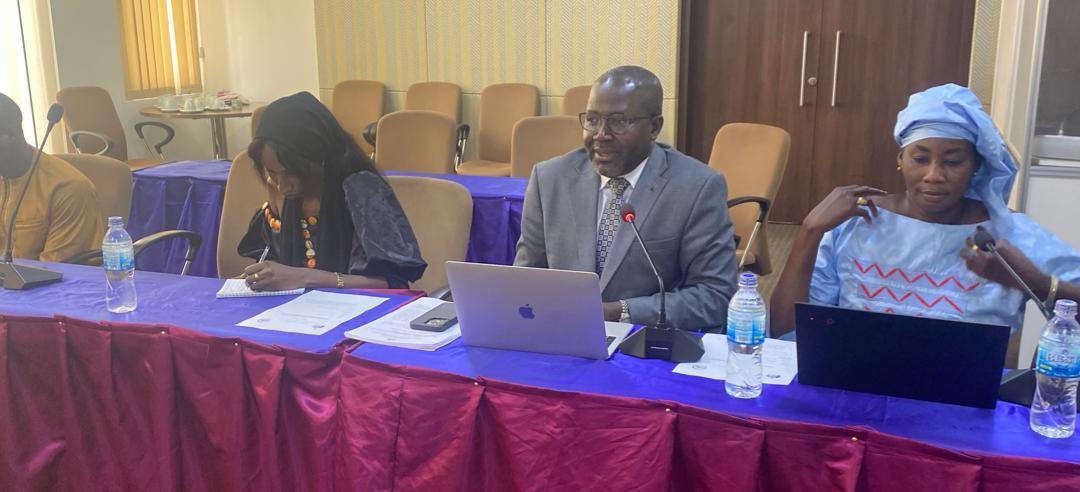By Arret Jatta
West Minster Foundation for Democracy (WFD) Incollaboration with the British High Commission, on Thursday, 4th October 2024, launched the environmental democracy project at the British High Commissioner’s residence in Bakau.
The initiative aimed at reviewing, and identifying gaps and challenges at policy and institutional levels and solutions through participatory approaches with different stakeholders of State and non-state actors ranging from parliamentarians and Civil Society Organizations to media on environmental issues.
Tabou Njie Sarr, Country Director of WFD, explained that The Gambia is struggling as a country when it comes to climate change.
“The effect of climate change is being seen every day, for example, the pattern of the rainfall, floods among others. That is why we want to engage on adaptability and also include parliamentarians who are the legislative body of the country for the project,” she said.
“We made research which shows the gaps in legislation, what the Gambia has when it comes to legislative instruments on environment and their involvement in climate-related issues,” she highlighted.
Mrs. Sarr added that those gaps are the reason this project is conceived to ensure that NAMs are informed so that when acts or policies come to parliament, their capacity is built to make sure they have the right knowledge to debate and come up with better policies for the country especially about climate change.
She emphasized the importance of collaboration and shared responsibility in confronting environmental challenges before everyone.

“By working together, we can ensure that our actions today lead to a more sustainable and resilient future for all. I remain confident that through our collective efforts, we will make significant progress in addressing climate change, preserving our natural resources, and promoting sustainable development.”
The British High Commissioner to The Gambia, Her Excellency Harriet King, highlighted that the UK’s mission is to create a world free from poverty and address environmental issues as well.
“It is fundamental to bring together these two issues that is the environment and climate together with democracy to address topics related to these menaces alongside lawmakers,” she said.
She added that in the face of a rapidly warming world and increasing environmental uncertainties, the need for robust, coordinated action has never been more urgent.
“The impacts of climate change are already being felt globally, and we must collectively rise to meet these challenges with resilience and foresight,” she said.
Hon Yahya Gassama, Chairperson of the National Assembly’s Select Committee on Environment, said Parliament plays a pivotal role in this effort.
“As the primary law-making institution, we are charged with enacting comprehensive legislation that safeguards our natural resources, promotes biodiversity conservation, and mitigates the effects of climate change. A strong legal framework is essential not only to protect our environment but also to ensure that future generations inherit a sustainable and thriving planet,” he emphasized.
Added that, as representatives of people they must ensure that the voices of all citizens, especially those most affected by environmental changes, are heard and reflected in national policy.





